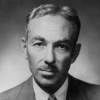E. B. White

E. B. White
Elwyn Brooks "E. B." White was an American writer. He was a contributor to The New Yorker magazine and a co-author of the English language style guide The Elements of Style, which is commonly known as "Strunk & White". He also wrote books for children, including Stuart Little, Charlotte's Web, and The Trumpet of the Swan. Charlotte's Web was voted the top children's novel in a 2012 survey of School Library Journal readers, an accomplishment repeated in earlier surveys...
NationalityAmerican
ProfessionWriter
Date of Birth11 July 1899
CountryUnited States of America
Life's accumulation is more discouraging than life itself, when stirred up.
Of course, it may be that the arts of writing and photography are antithetical. The hope and aim of a word-handler is that he maycommunicate a thought or an impression to his reader without the reader's realizing that he has been dragged through a series of hazardous or grotesque syntactical situations. In photography the goal seems to be to prove beyond a doubt that the cameraman, in his great moment of creation, was either hanging by his heels from the rafters or was wedged under the floor with his lens in a knothole.
In middle life, the human back is spoiling for a technical knockout and will use the flimsiest excuse, even a sneeze, to fall apart.
Familiarity is the thing-the sense of belonging. It grants exemption from all evil, all shabbiness.
Why is it, do you suppose, that an Englishman is unhappy until he has explained America?
Dentistry is more impressive in town-what the rural man calls cleaning the teeth is called "prophylaxis" in New York.
The circus comes as close to being the world in microcosm as anything I know; in a way, it puts all the rest of show business in the shade.
The vision of milk and honey, it comes and goes. But the odor of cooking goes on forever.
Children are game for anything. I throw them hard words, and they backhand them over the net. They love words that give them a hard time, provided they are in a context that absorbs their attention.
Government is the thing. Law is the thing. Not brotherhood, not international cooperation, not security councils that can stop war only by waging it... Where does security lie, anyway - security against the thief, a bad man, the murderer? In brotherly love? Not at all. It lies in government.
I am still encouraged to go on. I wouldn't know where else to go.
Although there is no substitute for merit in writing, clarity comes closest to being one.
A schoolchild should be taught grammar - for the same reason that a medical student should study anatomy. Having learned about the exciting mysteries of an English sentence, the child can then go forth and speak and write any damn way he pleases.
A breezy style is often the work of an egocentric, the person who imagines that everything that pops into his head is of general interest and that uninhibited prose creates high spirits and carries the day.